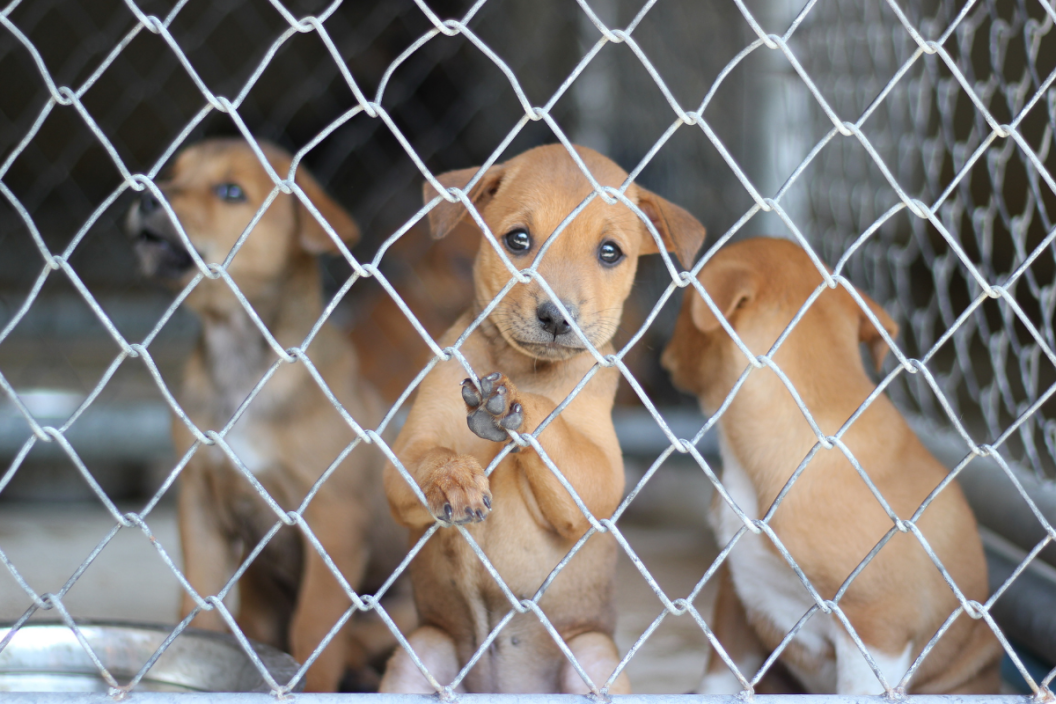U.S. Congress is putting an end to dangerous puppy mill practices.
People love their dogs and often treat them as additional members of the family. Dog owners love to shower their pups with plenty of toys, treats, and love and affection. But what people do not often think about is where exactly their dogs came from.
While some pet owners opt to rescue their dogs from local shelters, many choose to get their new family member from a dog breeder. If you are a first-time puppy owner, you may not factor the breeding practices of commercial breeders into your decision.
However, many have inhumane practices and lack standards of care. Puppies are being kept in stacked cages with wire flooring, tightly packed into small spaces with no room to roam. A new bill introduced by Washington D.C. lawmakers in the Senate is aiming to impose more robust standards on the dog breeding community with the Puppy Protection Act.
What is the Puppy Protection Act?
Thousands of dogs in commercial breeding operations languish in cramped wire cages with no room to run or play. The Puppy Protection Act, a bill introduced this week, promises to improve how these dogs are treated. https://t.co/OTmrvB4rFI via @HSUSKittyBlock. pic.twitter.com/WRprGAZze2
— HSUS News (@HSUSNews) April 27, 2021
While the Animal Welfare Act is already in place, the Puppy Protection Act aims to increase the level of care in commercial breeding facilities. The bill (S. 4757) was introduced by Sen. Dick Durbin from Illinois, who wants higher standards for breeding dogs and is a companion piece to bill HR 2442, which Rep. Brian Fitzpatrick of Pennsylvania introduced in 2019. Both bills have similar language.
Currently, 10,000 puppy mills are operating, keeping tens of thousands of dogs meant solely for breeding, according to work done by the Humane Society of the United States. These places do not always keep the highest level of care when it comes to breeding dogs and housing them until they are ready to be adopted out or sold off to pet stores.
The bills, H.R. 2442 and S. 4757, call for the Department of Agriculture to "expand the standards that govern the humane handling, care, treatment, and transportation of animals to include new requirements for commercial dog dealers."
The new requirements the bill is suggesting are:
- adequate housing, exercise, and veterinary care
- appropriate and nutritious food
- continuous access to potable water
- meaningful socialization with humans and compatible dogs for 30 minutes a day
Legislators also added that they want requirements in place for safe dog breeding practices and for dog breeders to make an effort to find good homes for dogs who are no longer being used for breeding. Many of the dogs who no longer can have puppies are euthanized by puppy mills.
The bill has 197 co-sponsors as of May. The majority are Democrats, and only 7 are Republicans, including Representative Brian Fitzpatrick from Pennsylvania.
The head of the Humane Society Legislative Fund, Sara Amundson, is heavily involved in creating safe environments for puppies. One of the main priorities for the fund right now is protecting puppies from unsafe practices.
AKC's Thoughts on the Puppy Protection Act
RELATED: Oregon to Ban Pet Stores from Selling Puppies from Breeders
The AKC has a set of standards in place for breeders to follow. However, they do feel that the Puppy Protection Act is a bit of an overreach. In a statement on their site, the American Kennel Club states:
While some portions of the measures include reasonable generalized guidelines for canine care, arbitrary requirements that ignore best practices for individual outcomes are not appropriate for federal mandates. Arbitrary, one-size-fits-all requirements do not take into account the broad range of breeds and types of dogs or best health and breeding practices. They also do not allow for creative approaches that allow expert breeders and owners to provide optimal care for their individual dogs and advance the art and science of responsible dog breeding.
The AKC encourages concerned breeders and pet owners to reach out to their representatives.
Is it safe to stack dog crates?
It is incredibly inhumane and unsafe to keep dogs stacked in cages, which is why the Puppy Protection Act wants to stop the practice. If crates are stacked, it can put the dogs in danger, especially if the crate jostles or falls. Each dog should be in its own kennel on the ground with plenty of room to walk around.
What to look for in a reputable puppy breeder
Adopting a new puppy is a big responsibility, and its care begins with who you adopt it from. According to the AKC, you can take steps to ensure that you are adopting from a reputable breeder.
- Meet the breeder in person
- Don't be afraid to ask a lot of questions
- Ask to see the puppy's parents
- Ask the breeder to give you a complete medical history
- Remember that the process takes time
The AKC also has resources for connecting with their Breeders of Merit and a Bred with H.E.A.R.T. program. Using these resources will ensure you support a quality breeder instead of getting a puppy from a mill who may have undisclosed issues.
Follow along on our Wide Open Pets Facebook page!




